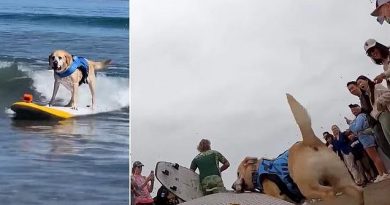Seeing the worst of the COVID pandemic, up close
For our free coronavirus pandemic coverage, learn more here.
As Victorians struggle through their sixth lockdown, you can forgive Grace Carroll if she rolls her eyes when some of us air our day-to-day gripes.
She’s seen the worst of the pandemic up close: the illness, the deaths, the grief and even the virus itself. An infectious diseases nurse at Royal Melbourne Hospital, she has been on the wards when the worst has happened. She hasn’t counted how many patients she’s lost, but she remembers faces.
Infectious diseases nurse Grace Carroll at the Royal Melbourne Hospital. Credit:Eddie Jim
Last July, Ms Carroll caught COVID-19 herself, giving her a rare perspective on this most extraordinary time.
When you ask what lockdown means to her, she says in good humour: “It doesn’t really mean anything.”
“For all of these lockdowns, I feel like I’m living in a parallel universe to everyone else. Everyone else who’s complaining that their bloody sourdough didn’t rise or whatever,” she says.
“I do get it. It’s tough doing remote learning and so on. It’s challenging, but I’d love a go at it. If I could work from home, I would. It would be nice.”
Ms Carroll, 41, came to Australia in her early 20s and stayed, becoming a nurse and building a life in Melbourne and a career that placed her at the coalface when COVID emerged. She and her colleagues knew about it before almost anyone in Australia; before it had a name.
“It was December 2019 when we had a little piece of paper on our noticeboard about a pneumonia in Wuhan in China. But you don’t really think much of it.”
It was weeks before the parameters of the pandemic took shape and experts realised it was infectious in humans. Hospitals were briefed to expect the worst. Ms Carroll had taken some time off to celebrate her 40th birthday in February 2020. The night before, she had a scare when she was looking after the hospital’s first COVID-19 patient.
“She coughed on my head and I didn’t have head cover on. But at this point, we didn’t really know what it meant. I did an incident report and stuff. I had a shower when I got home. I suppose she was kind of patient X because she was the first one that we saw.”
Ms Carroll dodged that first bullet, but not the next.
In mid-July, as the virus stormed back in Melbourne, Ms Carroll got the phone call she had come to dread. She’d been feeling unwell at work: “I said to one of the girls, ‘Jesus, I feel like I’m gonna faint’.”
But she carried on, thinking she was dehydrated from working in heavy personal protective equipment. The bad news came a couple of days later.
“It was one of our consultants from VIDS [the Victorian Infectious Diseases Service] ringing to tell me that I had it. She said, ‘You’ve tested positive’ and everything she said after that I couldn’t tell you because I just went into a state of shock.”
Living in a share house, she first had to tell her housemates and was then evacuated to a quarantine hotel where she collapsed exhausted and slept for most of the next two weeks.
“Absolutely exhausted and a lot of nausea,” Ms Carroll recalls. She never got sick enough to be hospitalised, but worries she may now have what experts are calling Long COVID, debilitating after-effects that might turn the initial infection into a long-term chronic condition.
“Fatigue-wise, I’m trying to remember how much energy I had before. I definitely had more energy than this.”
She was back at work after five weeks and is still on duty five days a week. The Delta variant has presented medical staff with fresh challenges.
“The people we’re seeing are getting sicker. They’re younger people. They’re getting sicker later. They’re coming in short of breath but they’d be already at day 10 or 11 and then they get worse. And they keep getting worse beyond that 14-day period, then they’re in ICU and on ventilators.”
She has bought a house since last year and finished her masters degree in nursing. On Friday nights, she and her friends convene online.
“We have called it the ‘positive vibes club’ and we’ve had Friday night Zoom drinks through every lockdown. They are a lifesaver to me. We have kept each other’s spirits up and laughed and cried with each other through this.”
There are few who need their spirits buoyed more than these heroes on our COVID-19 frontlines. When she looks back on the last 18 months, Ms Carroll sees the faces and hears the voices of those taken by the virus, and of the families she has comforted.
One woman wanted to hear of her husband’s last moments.
“She heard my Irish accent and she was happy. She said she knew he had gone because she was doing the ironing and the light flicked three times. He was Irish. I said, ‘Oh, that’s a real Irish thing – three knocks at the door and things like that’. The soul is saying, ‘I’m on my way’. So I think it made a difference to her.”
Another night, she set up an iPad so the grandchildren of an elderly patient could say goodbye.
“All the grandkids were singing her songs, and that singing filled the whole ward. It was the loveliest but saddest sound, of grandkids singing to their grandmother as she passed away.”
Three questions
What is your best lockdown strategy?
“I’ve learnt acceptance. Numbers, lockdowns and restrictions, I just let them wash over me now. I can’t get angry and frustrated anymore, it’s too exhausting.”
What do you miss most about life before COVID?
”Knowing I’m only a day away from home [in Ireland]. And spontaneity.”
Has there been a silver lining?
”It was the ability to save as much as I humanly could and I finally bought a little home. Also, seeing the goodness in people. This pandemic has brought out the worst but also the best in some people.”
Most Viewed in National
From our partners
Source: Read Full Article



